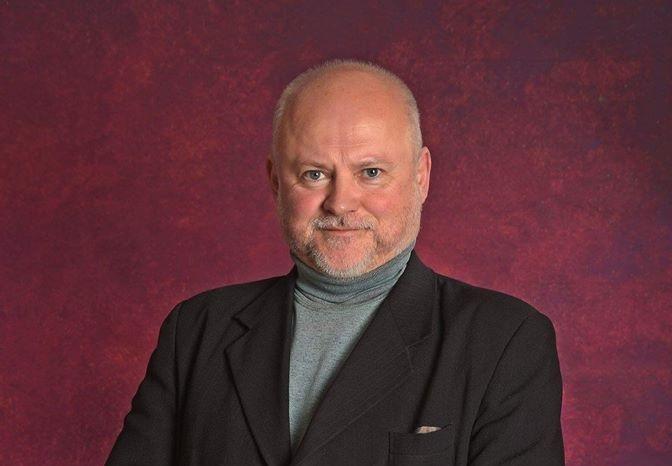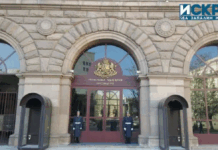
The political scientist prof. Todor Galunov gave a special interview to Iskra.bg minutes after the election of the government with Prime Minister Rosen Zhelyazkov. According to him, the decision of the parliament has been expected for several days and now the more important question is how the cabinet of the four-member coalition will be accepted by the society:
– How would you comment on the election of a regular government of Bulgaria?
– The election was expected. For a few days it became clear that there will be a cabinet. The question is what to expect from the already elected cabinet. First – how it will be received by the public. I think that in the formation of the cabinet, purely party-wise, purely politically, an attitude of the public played a role, that after so many elections, it seems better to have a cabinet. I say ‘some’ because I think that this nuance of having a cabinet at any cost is being used to make a rather complex party construct that is quite contradictory. At times the ideas of some of the parties are mutually exclusive. But in the end, this new quadruple coalition has become a fact. One of the problems of the new cabinet will be that the public expects with too high hopes that a regular government will solve most of the accumulated problems.
– And do you think that will happen?
– Very difficult, because the parties in it are very divergent. Secondly, when there is such a broad coalition there are always dissatisfactions and we have to move from inter-party dissatisfactions to intra-party dissatisfactions. I am sure that there will be a lot of dissatisfaction within each of the parties with this assembly, whatever their motives. There will also be purely personnel grievances – people who, for one reason or another, will feel aggrieved. It is very important what kind of policies this cabinet will start to make, after all, because the big goals of Bulgaria seem to have passed into big politics. Rather, this cabinet must solve current problems.
– One of the big goals has been to enter the euro area. In your opinion, is this goal alone enough to bring these four formations together?
– This goal alone cannot put everything together, because it is a goal that is not new. It cannot be appropriated by this cabinet as an idea. It is a goal that has been in place for many years. Practically since our entry into the European Union. There is going to be rather a confrontation here in society between parties that want us to enter more quickly and parties that do not want us to enter the eurozone in such a hurry, but that cannot be the only aim of the cabinet. If that were the only objective, such a cabinet could have been formed a long time ago!
– What time horizon do you see for this government?
– This is the most difficult question! If this cabinet successfully passes the already delayed 2025 budget and in the late autumn of this calendar year manages to get the new 2026 budget through parliament, I think it can be described as relatively successful in terms of this financial and budgetary stability. So from that point of view, if it stays around for a year, that would be an element of political stability. I do not share the view that what is set up as too temporary can be too permanent. One year is a normal political time. Those parties that made the Cabinet gave themselves a temporary reprieve. None of them wanted to go to elections. They had nothing to offer. What was GERB going to offer? The same!
– Isn’t this true for all parties?
– It is valid, but some of the parties have very severe internal political problems. Here, for example, is the BSP. They did not seem to have any use at the moment to go immediately to elections. We also see the MRF-Dogan, which is going to be slightly behind the scenes, but they are suffering a lot at the moment from the MRF’s strong New Beginnings position and the grab for power in this case for some of the parties is rather the opposite of what is being said. We often say that any government tires and lowers ratings and that any government is dangerous for future electoral clout. But it seems to me that with BSP, Dogan’s DPS and even ITN, they are hoping to implement some, if not very successful, good governance and that will largely preserve their positions.
– I will ask you another difficult question. Is Peevski, in your opinion, in the government or is he in opposition at the moment?
– In the public space he has no choice but to be in sharp opposition to the government. Rather, I am not sure whether, if the cabinet is shaken, his party will not try to save the construction. All parties are more or less watching what will happen if they go to elections. So at this stage it seems to me that he will be the official opposition. It’s very difficult to talk about behind the scenes because that has to be proven. So I think those parties that are outside the government are more interested in being the open opposition and criticising the government because it seems relatively stable. 125 votes out of 114 is not some kind of superstability.
– If the Political Party „Greatness“ enters, what do you think will happen, because it will mean taking MPs from each of the parliamentary groups…
– If the Political Party „Greatness“ enters, there is an option that the cabinet will be based on one vote. But we have no guarantee that if ‘Greatness’ comes in, it will set out to bring down the cabinet.
– In your opinion, if they come in, what will be their orientation?
– At least in the first instance, I don’t think they will set out to bring down the cabinet because they need to get into politics a little bit. People should see them and only then they can be more radical. If they come in and immediately want to dissolve parliament, I don’t know if they are prepared for that. Although there is an attitude that they are important and that this 3.999% does not speak well for the electoral process. They can use the mindset of being something of a political victim in the eyes of the people, but it seems to me that they are not going to move quickly to bring down the cabinet.
– Do you see anything surprising in the composition of the new cabinet?
– I notice things that are telling. Some of the ministers were already…
– But some of them are in very different positions.
– But they’re part of a government that ended some time ago. The resuscitation of this kind of cabinet and the emergence of these kind of persons who undoubtedly have a great deal of experience in politics wants to make a reassessment of the past. That is to say, to prove that the governance of the then coalition led by GERB was successful. And GERB is now showing that it is betting on the experience that was successful for them. And this, however, now gives fodder to the critics of the cabinet to say that these people have already been in government and it is hard to expect any cardinal new innovations from them. Whereas with the BSP we see them throwing two of their iconic leaders into the fray who are possible contenders for the post of President. This has a lot of risks, but there is also the possibility that if they are successful, it will have its pluses. Whereas with There Are Such People the problem is whether they will remain a political formation around the five percent. It’s very mixed there. The MRF-Dogan needs one protection from the state to be able to stop this free fall of their percentage and into this hole between the old MRF and the new MRF. Furthermore, I have noticed that such coalitions lead to an attempt to bloat the state apparatus, the posts, as it is difficult to balance the interests of many political formations. The middle tier of parties wants its political fulfilment.
– Why do you think the DB were excluded from the negotiations?
– There was not enough flexibility between GERB and Democratic BulgariaB. A lot of mistrust has accumulated. Although if we look at it purely ideologically, there should not be any particular differences between them. They were a more natural partner than the Bulgarian Socialist Party and “There is Sucha a People”. It was not politics that prevailed here, but rather interpersonal contradictions because they do not have colossal political differences.







[…] Prof. Todor Galunov: The most important thing is how the government will be accepted by the society! […]